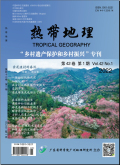热带地理2024,Vol.44Issue(2):269-279,11.DOI:10.13284/j.cnki.rddl.003830
特色小镇的理论剖析及其政策分类研究
Theoretical Elaboration and Policy Typologies of Specialty Towns:Evidence from Zhejiang,China
摘要
Abstract
The construction of specialty towns is positioned as an important breakthrough and down-to-the-ground path in the implementation of China's new-type urbanization strategy.It highlights the roles of place-based industrial specialization and agglomeration economics.In this process,the Chinese government plays a supportive and guiding role in enabling and aligning multiple actors to engage with to build new platforms for innovation and entrepreneurial activities that integrate the functions of production,living,and ecology.The specialty towns construction strategy is aimed at promoting people-based urbanization and the regional ability of endogenous development.Given the"top-down"and standardization-led nature of the specialty towns policy program,implementation and practices at the local level are both challenging and problematic.This paper adopts perspectives and concepts from evolutionary economic geography and agglomeration economics to explore the antecedents and mechanisms of urbanization.It emphasizes the geographical spatiality of the program in local implementation.Taking 134 provincial specialty towns of Zhejiang province as research cases,the paper refers to a mixed set of methodologies of on-site,interview-based fieldwork;an online survey;and a document analysis to identify the historical foundations,industry attributes,and development objectives of the specialty towns.It also generates a typology of the 134 specialty towns,as well as a typological guideline regarding policy intervention for the broader implementation of specialty towns in China.Three main types of specialty towns are identified in our study:The first type is built on the basis of state-led,sci-tech industrial parks/new towns,whose development aims are oriented toward the development of new industrial paths.The second type is based on firm-led specialized markets located in small administrative towns that support the upgrading and renewal of existing local traditional industries.The third type is featured by the local presence of place-specific natural or sociocultural resources,and it is based on scenic spots.It is oriented to the development of the tourism economy.In conclusion,this study promotes the incorporation of evolutionary economic geography perspectives into the policy implementation of specialty towns and calls for taking the concepts of history,space,and place into account for a better understanding of these towns.By so doing,future policy methods will not be standardized,quota-based,and top-down.关键词
新型城镇化/特色小镇/集聚经济/演化经济地理/分类政策/浙江省Key words
new-type urbanization/specialty towns/agglomeration economies/evolutionary economic geography/topological policy/Zhejiang分类
管理科学引用本文复制引用
胡晓辉,林潭晨,张天尧,张旭亮..特色小镇的理论剖析及其政策分类研究[J].热带地理,2024,44(2):269-279,11.基金项目
深圳市海外高层次人才科研启动基金项目(FB11409010) (FB11409010)
国家自然科学基金面上项目(42371174) (42371174)

